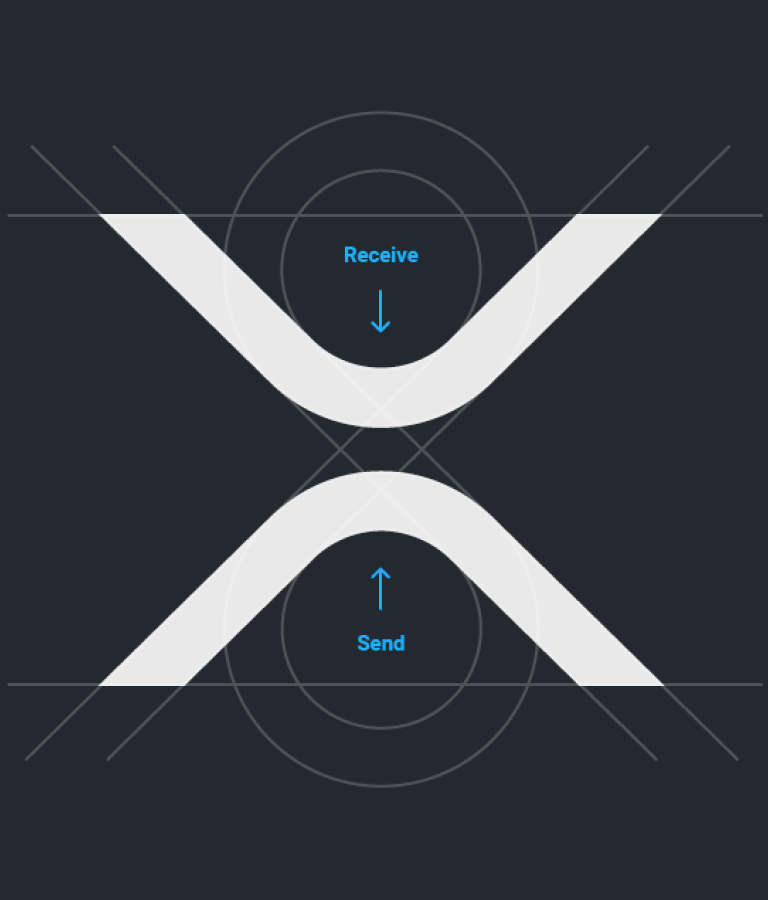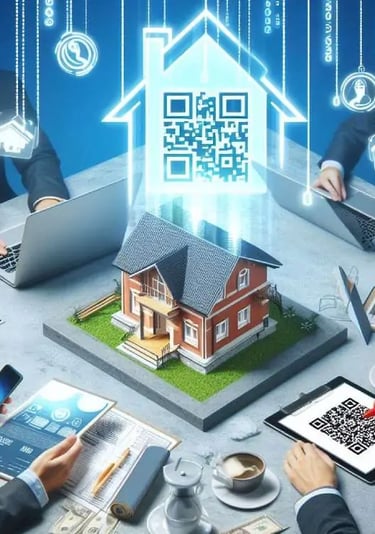





Welcome to Blockchain 101, your essential guide to understanding how this transformative technology is reshaping the real estate landscape. At LuxEsystems, we believe that informed clients make empowered decisions. This page is designed to demystify blockchain, making its core concepts accessible to everyone, while providing enough technical depth for experts to appreciate its profound implications for property transactions.
Blockchain for Real Estate: Demystifying the Digital Revolution

At its core, a blockchain is a decentralized, distributed ledger that records transactions across many computers. Each 'block' in the chain contains a timestamped list of transactions, and once a block is completed, it's added to the chain. This creates an immutable and transparent record of all activities. Unlike traditional databases, blockchain is not controlled by a single entity, making it highly resistant to tampering and fraud.
Key Concepts
Decentralization: No single authority controls the network. Instead, participants collectively maintain and validate the ledger, eliminating the need for intermediaries and reducing points of failure.
Immutability: Once a transaction is recorded on the blockchain, it cannot be altered or deleted. This creates a permanent and verifiable history, crucial for sensitive records like property deeds.
Transparency: While identities can be pseudonymous, all transactions on a public blockchain are visible to every participant. This open-ledger approach fosters trust and accountability, as all parties can verify the history of an asset.
What is Blockchain? The Foundation of Trust
Blockchain technology addresses many long-standing challenges in the real estate industry, offering solutions that enhance security, efficiency, and accessibility.






Secure Property Records and Ownership
Streamlined and Efficient Transactions
Smart Contracts Explained
By recording property deeds and ownership transfers on a blockchain, LuxEsystems ensures an unparalleled level of security. The immutable nature of the ledger means that ownership records are tamper-proof and verifiable, significantly reducing the risk of fraud and disputes over title.
Traditional real estate transactions are often slow, complex, and involve numerous intermediaries. Blockchain streamlines this process by automating many steps, reducing paperwork, and accelerating verification. This leads to faster closings and a more efficient overall experience for all parties involved.
Smart contracts are self-executing contracts with the terms of the agreement directly written into code. They automatically execute when predefined conditions are met, without the need for intermediaries. In real estate, smart contracts can automate escrow releases, property transfers, and rental payments, ensuring that agreements are honored precisely and efficiently.
How Blockchain Transforms Real Estate Transactions

Real estate tokenization is the process of converting real estate assets into digital tokens on a blockchain. Each token represents a fractional ownership share in a property, making real estate investments more accessible and liquid.
What is Tokenization?
Fractional Ownership: Investors can buy a portion of a property, lowering the barrier to entry for real estate investment.
Enhanced Liquidity: Tokens can be traded 24/7 on secondary markets, providing investors with greater flexibility to buy and sell their stakes compared to traditional property sales.
Global Access: Tokenization opens up real estate investment to a global pool of investors, transcending geographical boundaries and traditional market limitations.
Tokenization breaks down a physical asset, like a building, into smaller, digital units (tokens). These tokens are then recorded and managed on a blockchain, allowing for easy transfer and trading. This process democratizes access to high-value assets that were once exclusive to institutional investors.
Fractional Ownership, Enhanced Liquidity, Global Access
Understanding Real Estate Tokenization, Fractional Ownership & Liquidity
Frequently asked questions
Is blockchain secure for real estate?
Yes, blockchain's cryptographic security and immutable ledger make it highly secure, significantly reducing fraud and tampering risks.
How does Propy use blockchain?
Propy uses blockchain for secure title and escrow, on-chain deed recording, and streamlining the entire transaction process, enhancing transparency and efficiency.
Can I really buy a fraction of a property?
Yes, through real estate tokenization, properties can be divided into digital tokens, allowing for fractional ownership and investment.
What are the benefits of smart contracts in real estate?
Smart contracts automate agreements, reduce the need for intermediaries, and ensure transparent, self-executing terms, leading to faster and more reliable transactions.
What states offer a full on-chain property transaction?
Currently, only three US states offer a full on-chain transaction: Arizona, Colorado and Florida.
Many other states offer listing management services through Propy.
